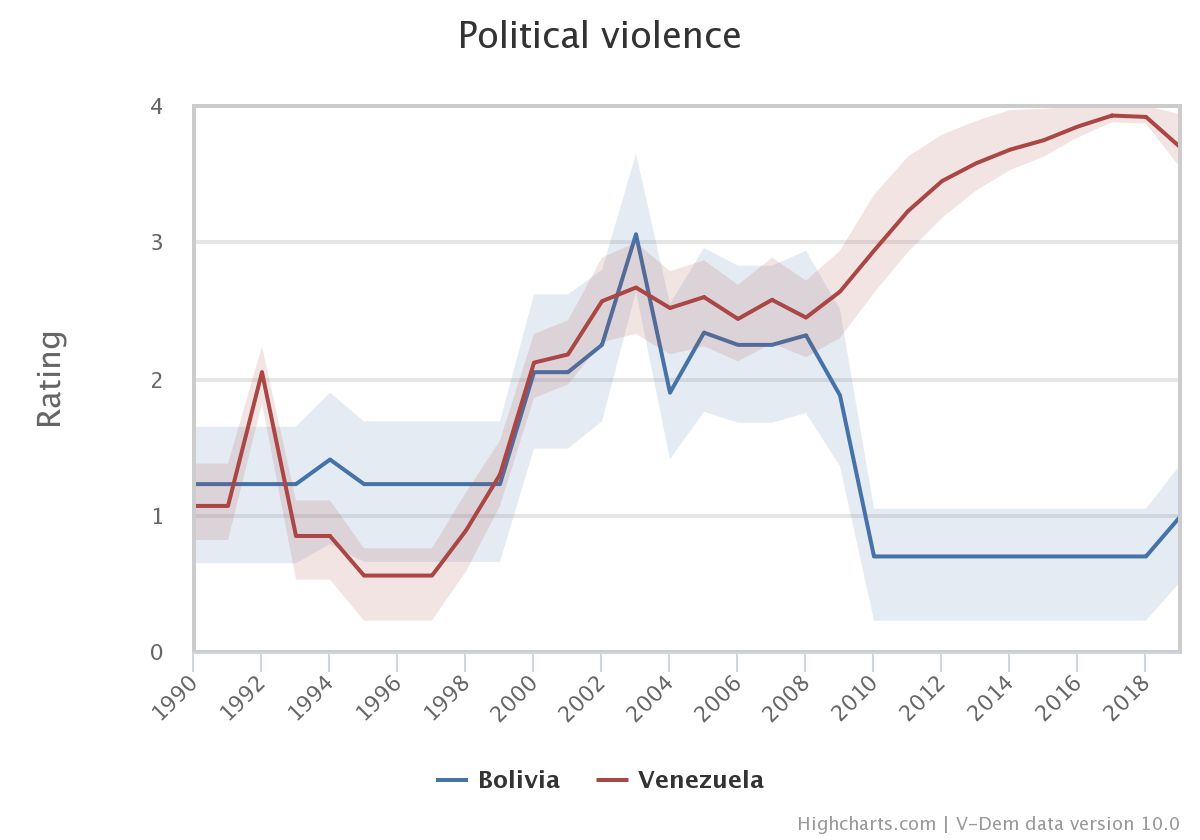Political Violence in Venezuela and Bolivia: Divergent Paths in Response to Autocratization
By: Lukas Bernhard
May 25, 2020
In 2019, people in both Venezuela and Bolivia took to the streets demanding accountability from increasingly autocratic governments. These protests were often accompanied with political violence. This week, we use the V-Dem online tools to compare trends in political violence by non-state actors in these two countries.
These trends are captured using the new V-Dem indicator for political violence. This indicator captures how often non-state actors used political violence against persons. It is measured on a scale from 0 (not at all) to 4 (often).
The graph reveals that during the first decade of 2000, both Venezuela and Bolivia shared a similar degree of political violence. Whereas the situation has improved in Bolivia, after the indigenous Evo Morales became president in 2006, the situation in Venezuela has worsened.
Once one of the richest countries in Latin America, the crisis-ridden Venezuela suffers from deteriorating socioeconomic and political conditions, marked by a high level of political violence. Amidst this, President Nicolás Maduro and opposition leader Juan Guaidó, who declared himself interim president, are fighting for power.
Compared to this, Bolivia is at a relatively low level of political violence today. Yet, after a relatively peaceful decade, Bolivia has seen a recent increase in political violence. This resulted from irregularities during the presidential elections on October 20, 2019. President Evo Morales was forced to resigned by a large protest movement backed by the military. Subsequently, interim President Jeanine Áñez managed to pacify the resulting protests through violence and a strong police and military presence, actions that have been condemned for their human rights violations. Áñez quickly called new elections for 3 May 2020, but, with the ongoing corona pandemic, the government postponed the elections. A new date has not been named yet.
If you are interested in Venezuela, see e.g. one of our other posts on Venezuela and civil society. To learn more about V-Dem indicators and our online analysis tools, visit www.v-dem.net.


